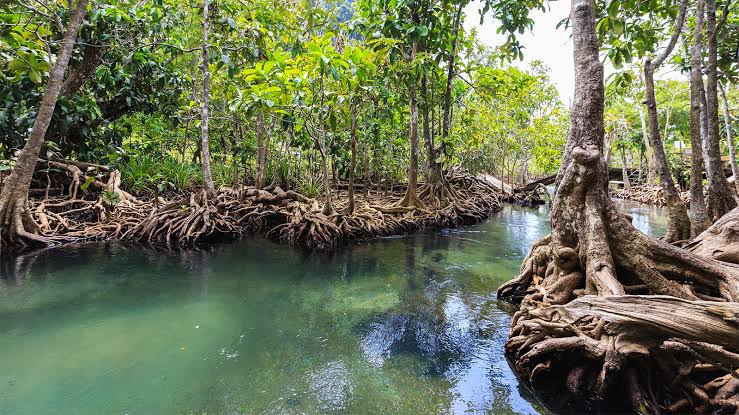Unless sustainable source of funding is secured to improve infrastructure especially in the energy sector, Africa risks annual economic losses of up to $415 billion by 2030 from the impact of climate change on the environment.
While energy and financial experts on one hand said Africa needs over $23 billion to upgrade existing refineries on the continent to produce cleaner fuels and displace charcoal with modern fuels, they also insist that without significant improvements in infrastructure resilience, annual economic losses from natural disasters’ damage to urban infrastructure alone would increase from $300 billion currently to $415 billion by 2030.
Speaking at the recent ARDA Virtual Sustainable Financing Workshop, executive secretary of African Refiners and Distributors Association (ARDA), Anibor Kragha said strategic options are needed for financing energy transition in the African downstream petroleum sector.
Kragha disclosed that sub-Saharan Africa’s import needs for transport fuels will continue to grow for the forseeable future, making the region the world’s largest importer by 2030. He lamented that complex, inefficient supply chains, intra-African trade challenges impede implementation of cost-effective clean energy solutions on the continent but that the African Continental Free Trade Act (AfCFTA) presents an opportunity for the continent to address this issues and deploy an an inclusive, equitable energy transition roadmap that captures the priorities, challenges and perspectives of Africa’s low-carbon emitting countries.
Kragha and other stakeholders insisted that Africa’s share of global emission remained low, therefore the roadmap for energy transition must not prioritise near-term emissions reductions (with relatively little climate benefits) over support for economic development and energy transformation.
A senior director at Africa Finance Corporation (AFC) and CEO of AFC Capital Partners, Ayaan Adam noted that climate change ,including high temperatures and prolonged heat wave phenomena, changing precipitation patterns, droughts, floods, rising sea levels may significantly damage infrastructure assets, leading to the loss of $415 billion by 2030 in Africa alone. “With Africa being the most vulnerable continent to climate change, mainstreaming climate change is a key requirement for the long-term viability of its infrastructure,” she noted.
Adam said the effect of climate change in Africa is disproportionate to its share of global emissions – with implications on future infrastructure requirements.
Future infrastructure developments, Adam said need to be able to reduce, accommodate or recover from the effects of natural disasters and climate extremes, adding that this would require climate resilient infrastructure planning plus additional cost consideration for development. As such, AFC and AFC Capital Partners are promoting their Infrastructure Climate Resilience Fund (ICRF) which will drive investments in climate resilient infrastructure projects across the African continent in the AFC’s core sectors – Transport & Logistics, power, Telecoms and Industrial Parks.
Also, global head, Client Relations at Afreximbank, Rene Awambeng noted the impacts of growing urban population in Africa on energy demand for industrial production, cooling and mobility.
According to him, energy demand in Africa grows twice as fast as the global average, and Africa’s vast renewables resources and falling technology costs can drive double-digit growth in deployment of utility-scale and distributed solar photovoltaics (PV), and other renewables, across the continent.
He noted that although clean energy and decarbonizing international investment and finance seem to be dominating the development discourse, Africa could leverage on its vast base of existing solid minerals, including rare-earth minerals and metals, that would fuel clean energy. That nothwithstanding, while the Africa Energy Outlook 2014, had noted that 30 per cent of global oil and gas discoveries made between 2010 and 2014 have been in Sub-Saharan Africa, Awambeng said many countries that were previously net energy importers would become energy exporters in the next five years due to increasing oil exports.
While making a joint presentation, experts at Vitol, Michael Curran (Vitol Global Head of Carbon Tradiing) and Maryro Mendez (Vitol Refineries Research Team Lead) noted that technologies already exist to develop refineries that produce net zero carbon emissions but that Environment, Social & Governance (ESG) investment mandates and capital reallocation away from hydrocarbons into renewables/energy transition amongst other issues have resulted in reduction in financing options and increased debt service costs for arbon -intensive sectors. “Most companies already have plans for reducing emissions. These include measurement and reporting, operational improvement, and incorporating carbon-abatement objectives in investment proposals. Implementation, however, is in an initial stage and faces several barriers: resources are scarce, in terms of both capital and technical capabilities, and CO2 reduction is not always a top priority,” the experts said.
They stressed that while the refining sector contributes only 3% to global energy sector emissions, there are significant opportunties for reducing these emissions especially in regions like Africa where demand for refined products will grow and emissions will grow accordingly. In addition, they advised that the key opportunities for carbon emissions reductions in refineries will include increasing energy efficiency via operational changes and small investments, reducing flaring, improved gas pipeline planning and investing in cogeneration. Ultimately, continued energy efficiency improvements and fuel switching represent the most promising near -term strategies for CO2 emissions reduction in the short-term, but objectives that span cost effective initiatives, management capabilities, access to capital and stakeholder engagement will be critical in aligning decarbonisation goal of African refineries to the broader long-term energy efficiency goals of the continent.
We’ve got the edge. Get real-time reports, breaking scoops, and exclusive angles delivered straight to your phone. Don’t settle for stale news. Join LEADERSHIP NEWS on WhatsApp for 24/7 updates →
Join Our WhatsApp Channel










